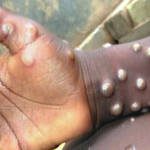Ghana is currently performing only 30% of the required surgical operations across the country, primarily due to issues such as under-tooling, inaccessibility, inadequate human resources, and the high cost of care.
This means 70% of all surgeries in Ghana are not performed due to severe challenges.
The country faces a severe shortage of surgical, obstetric, trauma, and anaesthesia (SOTA) physicians, with just six professionals per 100,000 people—far below the West African Health Organisation’s (WAHO) recommendation of 20 per 100,000.
Critical shortage of SOTA professionals
The shortage of these specialists is further exacerbated by their uneven distribution, with significant gaps, particularly at the district level.
Dr. Opoku Ware Ampomah, Chief Executive Officer of Korle-Bu Teaching Hospital, highlighted these concerns during the launch of the National Surgical Obstetric and Anaesthesia Plan (NSOAP), a strategy aimed at improving SOTA care across Ghana.
The National Surgical Obstetric and Anaesthesia Plan
The NSOAP is designed to provide equitable access to safe and high-quality SOTA services over the next five years (2025-2029).
It focuses on addressing infrastructural gaps at all levels of healthcare, from primary to tertiary facilities, and outlines goals, strategic objectives, and interventions related to workforce development, service delivery, financing, information management, governance, and leadership.
Investment and implementation
The plan is projected to cost approximately $503 million over its implementation period.
It includes initiatives to rehabilitate SOTA infrastructure, expand training programs for specialists, and improve overall service delivery.
The plan also stresses the importance of equitable distribution of health professionals and retention programs, particularly in underserved areas.
Leveraging technology and addressing gaps in care
NSOAP aims to leverage technology to improve service delivery and engage communities in outreach programs.
It also seeks to address disparities in access to care by focusing on neglected surgically treatable conditions, such as structural birth defects and gender-based violence cases.
Alignment with global health initiatives
The plan aligns with the World Health Assembly Resolution 68.15, which calls for countries to expand emergency and essential surgical care as part of achieving universal health coverage (UHC) by 2030.
A timely intervention
Dr. Ampomah emphasized the urgency of the policy, stating that only 30% of necessary surgeries are being performed due to under-resourcing and other challenges.
He described trauma as a “silent epidemic” in Ghana, causing more deaths than COVID-19, particularly among people in their prime working years.
Call for collaboration
Mr. Alexander Akwasi Acquah, Deputy Minister of Health, underscored the importance of multi-stakeholder collaboration, public-private partnerships, and teamwork to ensure the NSOAP’s success.
Dr. Ruben Ayala, Chief Policy and Advocacy Officer at Operation Smile, echoed the need for teamwork to effectively implement the plan.
- Presidential Committee on Accelerated Export Developmentunveiled - 6 May 2025
- GNFS is suffocating under 800,000 prank calls a year - 6 May 2025
- Tuesday, May 6, 2025 Newspaper Headlines - 6 May 2025




